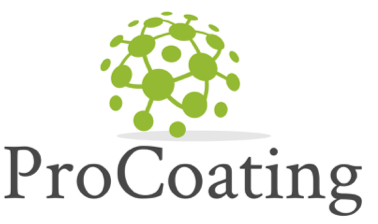PROCOATING
Advanced Coating Processes
Challenge
One of the main problems in the glass industry is the fast wear and degradation of the surface of molding tools used in the glass manufacturing process, which in direct contact with the melted glass are subjected to severe conditions of abrasion, corrosion and fatigue at high temperatures. The wear occurring in these components (plungers, molds, mouthpieces, etc.) has led, in the last years, to efforts to develop surface engineering solutions to overcome this problem. Having not yet reached the desired success, these solutions would allow reducing the wear, the cracking problems and increase the lifetime of the tools, thus, making the whole process more efficient, by reducing the number of rejected parts and the maintenance time as well as by decreasing the production cycle duration and improving the process from the energetic point of view.
Solution
Main Objective:
To strengthen research, technological development and innovation.
Taking this into account, pressed by the strong foreign competition, particularly by the leading edge companies where solutions based on surface modification techniques are currently being applied, the consortium aimed to develop surface engineering solutions for the protection of the majority of their components, extending the knowledge gained with the plungers to other mould parts; and promote their full or partial implementation in the production line of the promoter company. So this project was developed on two fronts:
i) Development of internal skills to adapt the manufacturing process of moulds to the application of surface engineering solutions in a HVOF pilot line, to be implemented in the promoter company;
ii) Study and development of surface engineering solutions based on sputtering technology – PVD, for the deposition of thin films with good mechanical properties at high temperature, which could support the harsh conditions of use and increased durability relative to the state of the art. The success of the industrial application of both solutions allows predicting productivity gains and an increase of the competitiveness of the partners companies. The surface modification methods are highly relevant and viable for the protection of mould surfaces used in the production of glass containers.
Objectives, Activities and Results expected / achieved
Goals:
i) Implementation of a pilot line for mold coating using HVOF;
ii) Adaptation and optimization of the deposition of thick coatings, previously successfully developed for application in punches, in the new pilot line of HVOF, on other molding components (molding cavities, primer mold, bases, nozzles, etc.). Development / selection and optimization of new thick coatings with adequate mechanical and thermal properties but which are simultaneously self-lubricating;
iii) Optimization of the deposition of thin coatings by sputtering, as an alternative solution to thick coatings, to protect the surface of molding components;
iv) Adaptation of mold manufacturing processes to incorporate coatings;
v) Investment in the HVOF pilot line in order to position the company in the state of the art in the production of molds for the glass industry in the international market;
vi) Positioning the promoting company as a leader in innovation in the international market in the field of thin films.
Results:
i) The implementation of a new technology in the company allowed it to be more competitive and improve the performance/quality of its products in service;
ii) Increased production rates with increased mold life;
iii) Decrease in maintenance intervention rates and reduction in rejection rates, elimination of the need for lubrication and reduction of energy consumption by 20%;
iv) Allowed the promoting company to assert itself as one of the few "players" in the area of thin films applied to the glass industry, worldwide;
v) With the use of thick coatings, it allowed an improvement in the quality of the parts produced, associated with an increase in productivity and a reduction in energy consumption, all due to a significant increase in thermal conductivity motivated by the use of significantly smaller thicknesses.

Project Reference
POCI-01-0247-FEDER-017950Funding

Intervention Region
Center (100%) of PortugalTotal Investment
1.940.482,41IPN Investment
227.064,56Total Eligible
1.498.990,73IPN Eligible
227.064,56EC Funding – Total
972.900,24EC Funding – IPN
170.298,42Duration
42 MonthsStart Date
2017-01-01End Date
2020-06-30Approval Date
2016-11-29Consortium
INTERMOLDE - Moldes Vidreiros Internacionais, Lda;B.A Vidro S.A;
Instituto Pedro Nunes.
Partners
TEandM S.A;ThyssenKrupp;
Keywords
Deposition of thin films;High temperature;
Surface modification methods.





